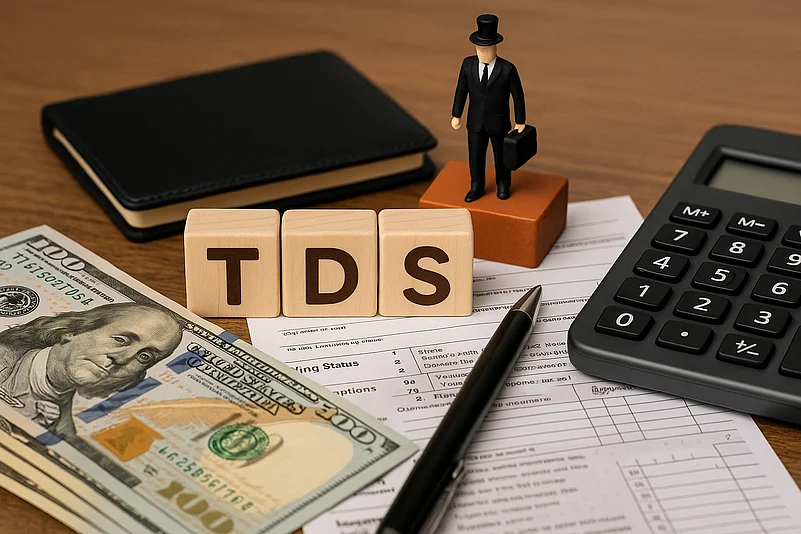TDS, or Tax Deducted at Source, describes the process by which a payer deducts a predetermined percentage of an outgoing payment as tax. This collected tax is subsequently submitted to the Income Tax Department, and the payee receives only the net amount.
“For eg, if a company pays you Rs 1,00,000 as professional fees and the applicable TDS rate is 10 per cent, then the company would deduct Rs 10000 from the professional fee and will pay you Rs 90000. Balance of Rs 10000 is deposited as TDS with the Income Tax Department against your PAN,” says Deepak Kumar Jain, founder and CEO, TaxManager.in, the tax advisory and e-filing portal platform.
TDS matters because it ensures that taxes are collected in advance and steadily throughout the year, thereby reducing the chances of tax evasion and burdening the taxpayer less at year-end.
It enhances regular income for the government and helps to keep track of transactions and aiding transparency and compliance. “For taxpayers, it reduces the burden of large tax payments, which reflect in 26AS and can be adjusted with the final tax payments during the filing of the Income Tax Return,” says Jain.
When Is TDS Applied
TDS is applicable when certain payments like salaries, interest, rent, commission, and purchase of property are made. The payer must withhold TDS at the earlier of two points: when they make the payment or when they credit the amount.
TDS applies to various types of payments when they cross specific thresholds. For salary, TDS is deducted based on the individual’s income tax slab. In the case of interest earned from bank fixed deposits, TDS is charged at 10 per cent if the interest exceeds Rs 50,000 in a year (Rs 1,00,000 for senior citizens).
Rent payments for land or buildings attract a 10 per cent TDS if the monthly rent is more than Rs 50,000. Professional fees are subject to 10 per cent TDS once they cross Rs 50,000 annually. Commission and brokerage payments exceeding Rs 20,000 a year are taxed at five per cent. Finally, a 1 per cent TDS is applicable on the sale of immovable property if the transaction value exceeds Rs 50 lakh.
How To Claim TDS Credit
“Individuals can claim TDS benefits at the time of submitting their Income Tax Return. Taxpayers should review their 26AS or AIS statements on the Income Tax Portal. These documents allow them to verify their income details and ensure the correct TDS has been deducted. A taxpayer can claim TDS under the Taxes Paid section in the Income Tax Return, and if TDS is more than the tax payable, a refund can be claimed,” says Jain.










